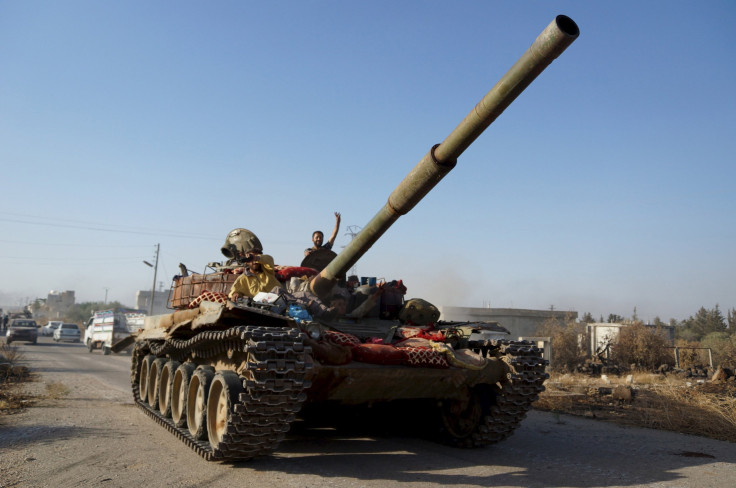ISIS In Syria: US So Far Training Only 60 'Moderate' Rebels To Take on Militant Group

The United States is currently training only 60 Syrian rebels as part of its program to combat the rise of the Islamic State group in the country -- a “much smaller” number than previously expected, Defense Secretary Ashton Carter admitted Tuesday. Last year, American lawmakers authorized nearly $500 million in funding to train and arm over 5,000 moderate Syrian rebels ever year over the next three years to fight ISIS.
“We’re … in the early stages of our train-and-equip mission in Syria. Three months into our program, training is underway, and we are working to screen and vet almost 7,000 volunteers to ensure they are committed to fighting ISIL, pass a counterintelligence screening, and meet standards prescribed by U.S. law,” Carter said, during a Senate Armed Services Committee hearing. “This number is much smaller than we hoped for at this point, partly because of the vetting standards I just described.”
In the past, questions have been raised over the viability and effectiveness of the plan. Turkey, Jordan, Saudi Arabia and Qatar -- the four countries where the training is taking place -- have consistently disagreed with the U.S. over the role the rebels should play in the Syrian conflict. While these nations want the trained rebels to focus on ousting Syrian President Bashar Assad, the Pentagon wants them to carry out anti-ISIS operations.
“We know this program is essential -- we need a partner on the ground in Syria to assure ISIL’s lasting defeat,” Carter said on Tuesday. “And, as training progresses, we are learning more about the opposition groups and building important relationships, which increases our ability to attract recruits and provides valuable intelligence for counter-ISIL operations.”
The low numbers of rebels trained could add to the growing skepticism of the program, which is part of the Barack Obama-led administration’s strategy to defeat ISIS in Syria without having to send in U.S. ground troops. A U.S.-led coalition has been conducting airstrikes in Syria and Iraq to help rebels and Kurdish fighters reclaim territories lost to ISIS.
Although the over 5,000 airstrikes carried out since August last year have helped local ground forces advance in several areas, ISIS continues to assert control over vast regions in northern Iraq and Syria -- including the city of Raqqa, which is the de facto capital of the group’s self-declared caliphate.
© Copyright IBTimes 2025. All rights reserved.






















